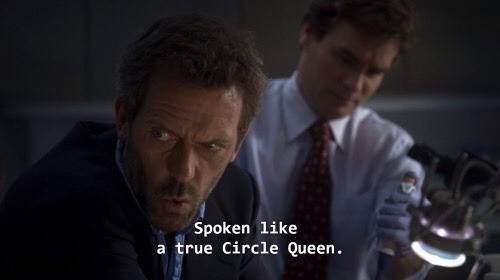Text
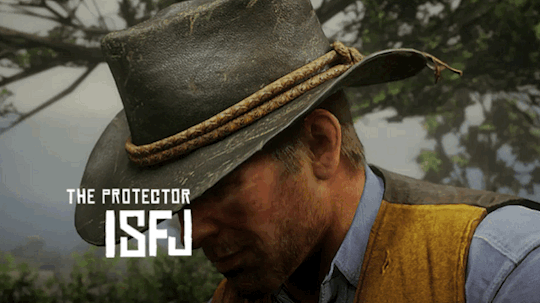


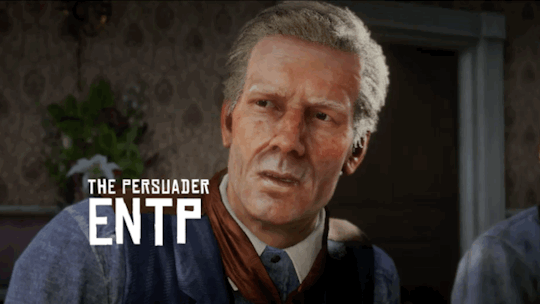


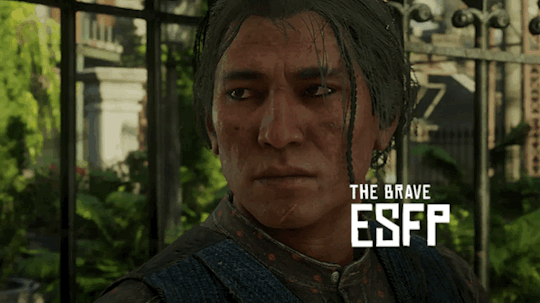


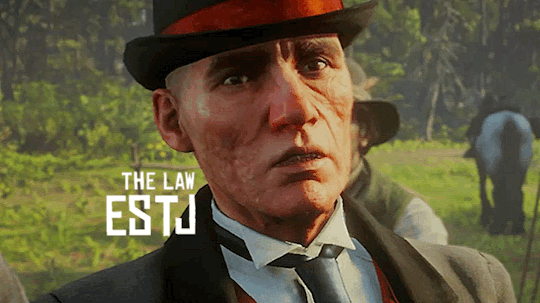
Red Dead Redemption II MBTI
Arthur Morgan | ISFJ
Like ISTJs, ISFJs are most comfortable with facts and information about concrete reality. However, where ISTJs organize and apply what they know impersonally, preferring numbers, schemes, or logical premises, ISFJs relate to the outer world in a decidedly personal way, with Extraverted Feeling. ISFJs are highly alert to behaviors and gestures that suggest another’s emotional attitude, needs, or expectations, and they generally acquire knowledge that allows them to be of service—preferably to one person at a time. ISFJs are so focused on others’ goals and expectations that they can seem literally selfless, without a full personality of their own. Support staffs throughout business and industry are made up of these types, who function almost invisibly, in the background of an organization, implementing decisions made by others. For this reason, it may be difficult to appreciate the Extraverted Feeling nature of an ISFJ’s expectations. Their behavior is dictated not by their social role—as a good parent, citizen, employee, and so forth—but by their self-experience as a helper, rescuer, or nurturer. Most ISFJs find that they are drawn to and attract individuals who need them wherever they go. Moreover, the response of an ISFJ to another’s need is immediate, dictated entirely by the others’ situation.
John Marston | ESTP
ESTPs are realists of the first order. Like all Sensates, they are geared by their senses and enjoy action and stimulation. these types are the quintessential adventurers. They like the thrill of the game, and they generally play out their need for action and challenge in fast-moving careers that require think-on-your-feet decisions and split-second coordination. Introverted Thinking gives ESTPs a talent for evaluating the variables in a crisis situation, and they invariably respond with action. They take in so much information at a glance that they may seem to have a sixth sense. They know far more than they’re able to express about what’s likely to happen and what they can do to prevent or support it.
Dutch van der Linde | ENFP
ENFPs are the most optimistic of the types—not because they’re determined to see the positive, but because they focus on hopeful possibilities. Like ENTPs, they grasp patterns very quickly, but their interest in them is decidedly personal. They see people’s potential for loving, for learning, for making a difference, and they look for ways to nurture and encourage it. Whether they’re running a halfway house, teaching a class, mobilizing a task force, or waiting in line at the grocery store, ENFPs have a warm, empathetic approach to others, and they establish immediate affective connections. They have implicit faith in their ability to identify with people, and are often sought out by coworkers and acquaintances who have a problem to solve or need to confide in someone. Like all Extraverted Perceivers, ENFPs are in the moment. They focus with equal intensity on whatever and whoever catches their attention. Indeed, because their experience of commitment is fateful and immediate, these types can easily burn themselves out. With each potential contact, the world becomes new again, and they’re reluctant to hold anything in reserve. ENFPs are so alert to circumstantial potential that they can adapt themselves to almost any job that interests them. This is one reason ENFPs are so keenly aware of systemic injustice. They’re inclusivists of the first order, deeply concerned by standards or institutions that categorize people or limit their natural potential. If they have to make a decision, they want feedback from as broad a range of people as possible.
Hosea Matthews | ENTP
ENTPs are aggressive, expansive, and opportunistic in the best sense of the word. They have no doubt about the importance of what they’re doing, and they’re at their best when they feel challenged and have to improvise. They want to be inspired, are rarely content with things as they are, and tend to have many projects going at the same time. Others are excited by, even propelled by, the relentless tide of their drive and enthusiasm. an ENTP’s curiosity, drive, and force of will are highly charismatic. These types are innovative, imaginative, and exciting to be around. They often attract people who rely on their energy and initiative to galvanize their own ambitions. However, ENTPs are not necessarily aware of others’ needs or weaknesses. Their focus is usually on systems and how they shape reality.
Sadie Adler | ESTP
ESTPs are realists of the first order. Like all Sensates, they are geared by their senses and enjoy action and stimulation. But unlike the ESFP, who is drawn by Introverted Feeling to an interest in people, the ESTP is galvanized by Introverted Thinking toward situations involving risk, strategy, and serious competition. Although Sensation types are evenly divided among men and women, American culture has traditionally associated many of the characteristics of the ESTP with a cultivated but apparently effortless machismo, perhaps best demonstrated by the fictional characters of James Bond and Rhett Butler. It should be emphasized, however, that society’s increasingly Sensate orientation has contributed to the rise of a strong ESTP female image—the gritty, sarcastic, self-possessed, karate-kicking woman who takes gender equality for granted and is determined to enjoy life on her own terms. Whether male or female, these types are the quintessential adventurers. They like the thrill of the game, and they generally play out their need for action and challenge in fast-moving careers that require think-on-your-feet decisions and split-second coordination. Introverted Thinking gives ESTPs a talent for evaluating the variables in a crisis situation, and they invariably respond with action. They take in so much information at a glance that they may seem to have a sixth sense. They know far more than they’re able to express about what’s likely to happen and what they can do to prevent or support it.
Abigail Marston | ISFJ
Like ISTJs, ISFJs are most comfortable with facts and information about concrete reality. However, where ISTJs organize and apply what they know impersonally, preferring numbers, schemes, or logical premises, ISFJs relate to the outer world in a decidedly personal way, with Extraverted Feeling. ISFJs are highly alert to behaviors and gestures that suggest another’s emotional attitude, needs, or expectations, and they generally acquire knowledge that allows them to be of service—preferably to one person at a time. Indeed, ISFJs are so focused on others’ goals and expectations that they can seem literally selfless, without a full personality of their own. Support staffs throughout business and industry are made up of these types, who function almost invisibly, in the background of an organization, implementing decisions made by others. For this reason, it may be difficult to appreciate the Extraverted Feeling nature of an ISFJ’s expectations. Extraverted FJs are drawn to roles and commitments that reflect prevailing social values, which assures them of feedback in predictable terms. ISFJs are more subjective in their motivations. Their behavior is dictated not by their social role—as a good parent, citizen, employee, and so forth—but by their self-experience as a helper, rescuer, or nurturer.
Eagle Flies | ESFP
ESFPs tend to be generous sorts, and they may seem vulnerable, even naive, because they’re inclined to surrender themselves to the moment without restraint. Whatever they’re in, they’re in wholeheartedly, and if they’re not interested, they’re likely to escape or create a humorous diversion. Thus, ESFPs may strike people as not taking life seriously enough, not caring enough about the consequences of their actions. In truth, these types are usually ambitious and want to be admired and respected, but they don’t make plans the way Judging types do; they don’t think in step-by-step terms. They think perceptually, alert to the opportunities life offers them. Introverted Feeling encourages ESFPs to be interested in people. They notice the way people say things, how they look when they say them, the intonation of their voices, the language of their bodies. For this reason, they often know more than they realize about others’ states and intentions. Sometimes their response is so attuned to the emotional state of another that they seem quite intuitive. But they are actually alert and observant to a very high degree, often without realizing what they are taking in.
Charles Smith | ISFP
Literature that advises us to find our inner child probably has in mind the fresh, uncomplicated vision that ISFPs bring to their world. Oriented by Introverted Feeling and Extraverted Sensation, these types are very much in the here and now. Naturally spontaneous, they live as though each experience were newly discovered and their primary purpose were to be in harmony with it. Such types understand outward reality by way of sensory skills so finely tuned that they’re likely to have a strong identification with nature. One might picture all those deceptively easygoing film heroes who make their statement by breaking into the psych lab and uncaging the chimps or by driving the horses out of the corral and watching them thunder back into the wild. Like other types who use Sensation to deal with the outer world, ISFPs learn by experience, and they need hands-on contact in order to know something well. Unlike Extraverted Sensates, however, they don’t require perceptual novelty to stay interested in something. When their Judgment is engaged, ISFPs are focused, contained, and nearly inexhaustible.
Micah Bell | ENTP
ENTPs are aggressive, expansive, and opportunistic in the best sense of the word. They have no doubt about the importance of what they’re doing, and they’re at their best when they feel challenged and have to improvise. They want to be inspired, are rarely content with things as they are, and tend to have many projects going at the same time. Others are excited by, even propelled by, the relentless tide of their drive and enthusiasm. In their self-motivation and hunger for experience, ENTPs are not unlike the ESTPs. Both are competitive and derive energy from playing the game very close to the edge. They know more than they can verbalize about how well they are getting across, and they use this knowledge pragmatically—with an eye toward winning. These similarities are largely the result of supporting their Extraverted Intuition with the impersonal wholistic logic of Introverted Thinking. ENTPs are easily bored, and their attention span can be ruthlessly short. Unless they are discovering something new, pursuing a hunch, or acquiring another angle on a persistent question, they are likely to be restless and agitated.
Agent Andrew Milton | ESTJ
ESTJs see reality as a kind of puzzle whose pieces must fit together logically if they are to understand the whole picture. They have an incisive understanding of organization and complexity. Theirs is not, however, the nuts-and-bolts approach to life that characterizes a born technician. ESTJs reason conceptually, one step at a time. The problems that absorb them are too complicated to be solved by common sense or intuition. They require the negotiation of structural relationships by way of logic. ESTJs observe facts, draw tentative conclusions, predict what will happen next, then check their predictions against real-life consequences. Anything that can’t be proved by hard evidence is ruled out. In the inimitable words of Sherlock Holmes, “When you have eliminated the impossible, whatever remains, however improbable, must be the truth.” ESTJs generally want their abilities to be useful to others. They’re like ISJs in this respect. However, they don’t have the ISJ’s self-experience as a rescuer or caretaker. ESTJs see themselves more as advocates—people whose position and knowledge permit them to represent a system and to negotiate its structure for others. Such types have a strong sense of principle. They know what they believe about how things should happen, and they try to live according to the rules they’ve set for themselves.
Descriptions from Lenore Thompson. Note that these typings were updated from one of my other blogs, vgmbti, in case you’ve seen these before. Not stolen.
53 notes
·
View notes
Text
"I hope this email finds you well.”
How this email finds me:

35K notes
·
View notes
Photo

chadwickboseman It is with immeasurable grief that we confirm the passing of Chadwick Boseman.
Chadwick was diagnosed with stage III colon cancer in 2016, and battled with it these last 4 years as it progressed to stage IV.
A true fighter, Chadwick persevered through it all, and brought you many of the films you have come to love so much. From Marshall to Da 5 Bloods, August Wilson’s Ma Rainey’s Black Bottom and several more, all were filmed during and between countless surgeries and chemotherapy.
It was the honor of his career to bring King T’Challa to life in Black Panther. He died in his home, with his wife and family by his side.
The family thanks you for your love and prayers, and asks that you continue to respect their privacy during this difficult time.
Photo Credit: @samjonespictures
117K notes
·
View notes
Text

I’m incapable of finishing my art .....another abandoned piece.
28K notes
·
View notes
Photo

they’re just fungis that are fun guys!!!!!!!!!!!!!
21K notes
·
View notes
Text
Hey y’all!
Blog is growing fast and we appreciate all of you! There’s three points I want to bring up in this post, regarding typing yourself, others, or fictional characters, and independent research/tests.
When you’re typing anyone, you need to look at the full picture. You need to look at their behaviors, obviously. But also stressors, mental illness, Enneagram type, test scores (i’ll get into that below) and any other potential outside factor, whether a stressful situation or whatever. And Enneagram can REALLY impact people’s behaviors. I’m an ESFP self-preservation 9w8. 9s passion is laziness, and I act that out through physically comfortable/familiar routines and stuff like that. In fact for this reason I used to mistype as ISFJ. Anyway, one of the main things about typing yourself especially is being honest with yourself. About all your flaws and everything stated above. Trust yourself. But don’t give into expectations or what you think may be “cooler”. I used to find myself too sensitive and mistype myself as a Thinker because of my own insecurities. But as I became more secure in myself and my typing, I realized that I wasn’t trying to be anyone anymore. I was being how i naturally am. If you focus so much on acting like the stereotype of your type (for example, acting like a dick just because you’re a TJ) you should think about if it’s actually correct and, of course, stop being a dick.
Now, tests. Tests are subject to a lot of negative criticism. But not all of them are that bad. Especially the official test. I’ve taken that one a few times, and E vs I varies depending on the period of my life but everything else is solid. If you take a test, get a result, and it feels right, like you’re being your true self, don’t overthink it. Believe it or not, not everything has to include functions. Don’t let anyone tell you otherwise or try to tell you your type. You know yourself best. Another thing about tests; pay attention to the scale/preference scores. For example, I always score extremely high on S and P. Without fail. If it’s like this for you, I would look into it. Tests can tell you a lot about yourself.
Lastly, research. We highly highly highly highly and highly encourage doing your own research. What I mean is YOUR OWN. Buy books, increase your understanding. But don’t take everyone else’s word for it. People on tumblr, twitter, and youtube *literally* make shit up. So be cautious. Our information is adapted by books. We’re not making this stuff up. But we still encourage reading. I personally only use three books:
Gifts Differing by Isabel Briggs Myers and Peter Myers
Personality Type: An Owner’s Manual by Lenore Thompson
Was that Really Me? by Naomi Quenk
But be careful. Certain books I don’t trust. Personality Hacker, Dario Nardi’s, and A.J. Drenth’s books and a few others I think. It’s not because I dislike them, but because a lot of the information is very generalized, not taking into account specific circumstances or how the functions look different when in a different position.
If any of you need any help, our ask box and messages are always open, and we’ll help however we can.
Happy typing!
Scott
12 notes
·
View notes
Text
“I sat with my anger long enough until she told me her real name was grief.”
— C.S. Lewis (via onlinecounsellingcollege)
97K notes
·
View notes
Text
Jesus felt weak & tired, He got frustrated, He wept aloud, He grieved, He sweat blood from great stress & anxiety, He felt physical pain. This is who you’re praying to. The One who knows.
17K notes
·
View notes
Text
“But the 8-hour workday is too profitable for big business, not because of the amount of work people get done in eight hours (the average office worker gets less than three hours of actual work done in 8 hours) but because it makes for such a purchase-happy public. Keeping free time scarce means people pay a lot more for convenience, gratification, and any other relief they can buy. It keeps them watching television, and its commercials. It keeps them unambitious outside of work. We’ve been led into a culture that has been engineered to leave us tired, hungry for indulgence, willing to pay a lot for convenience and entertainment, and most importantly, vaguely dissatisfied with our lives so that we continue wanting things we don’t have. We buy so much because it always seems like something is still missing.”
— Your Lifestyle Has Already Been Designed
227K notes
·
View notes


